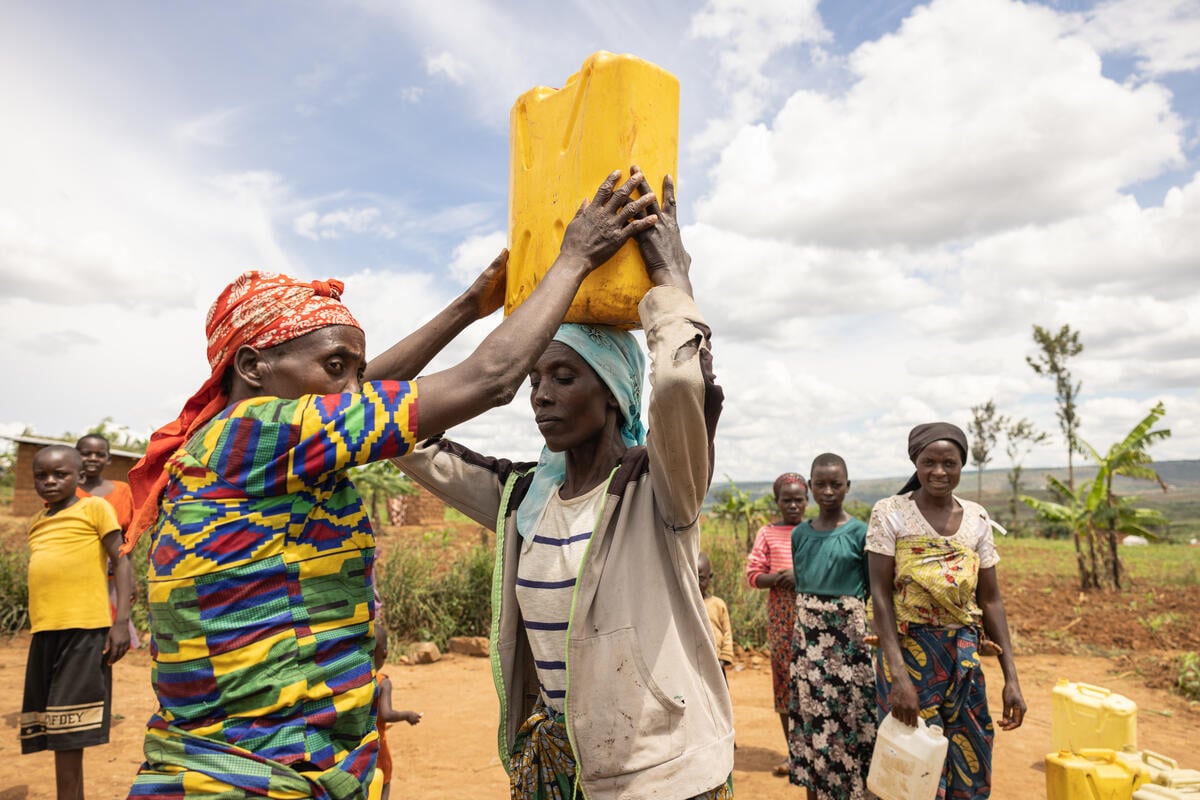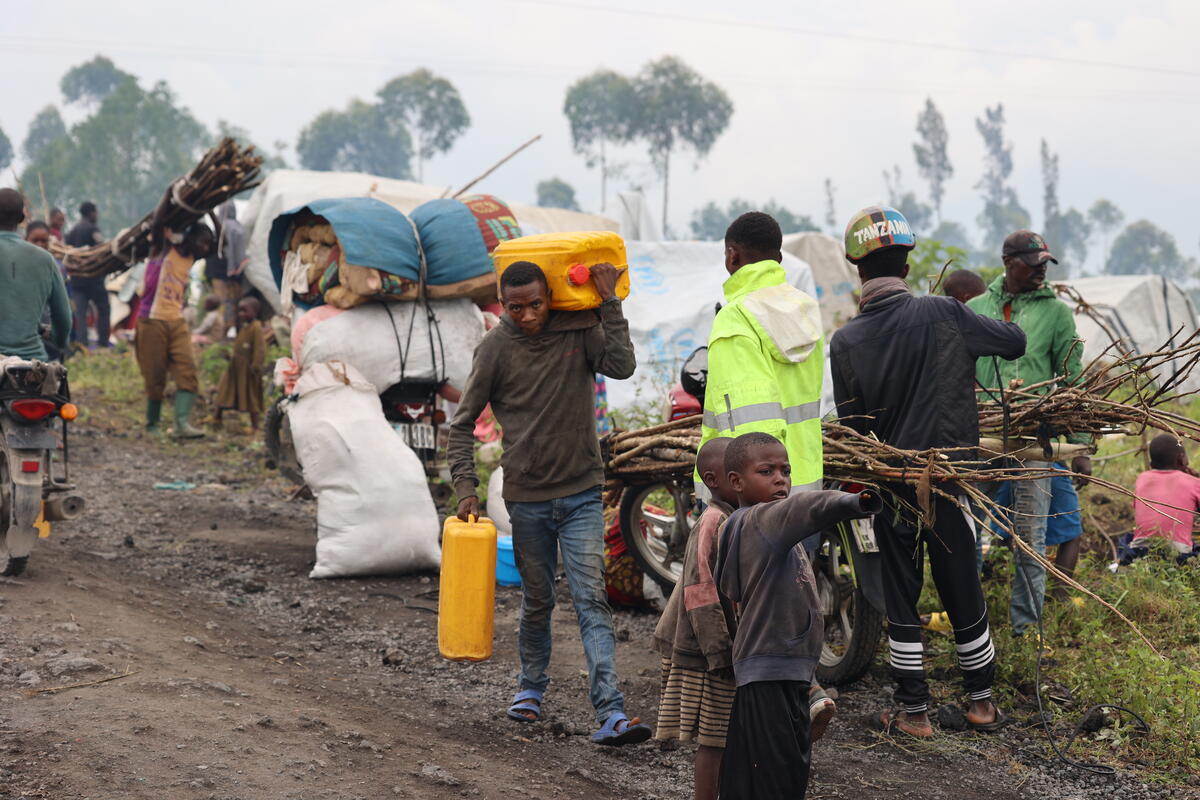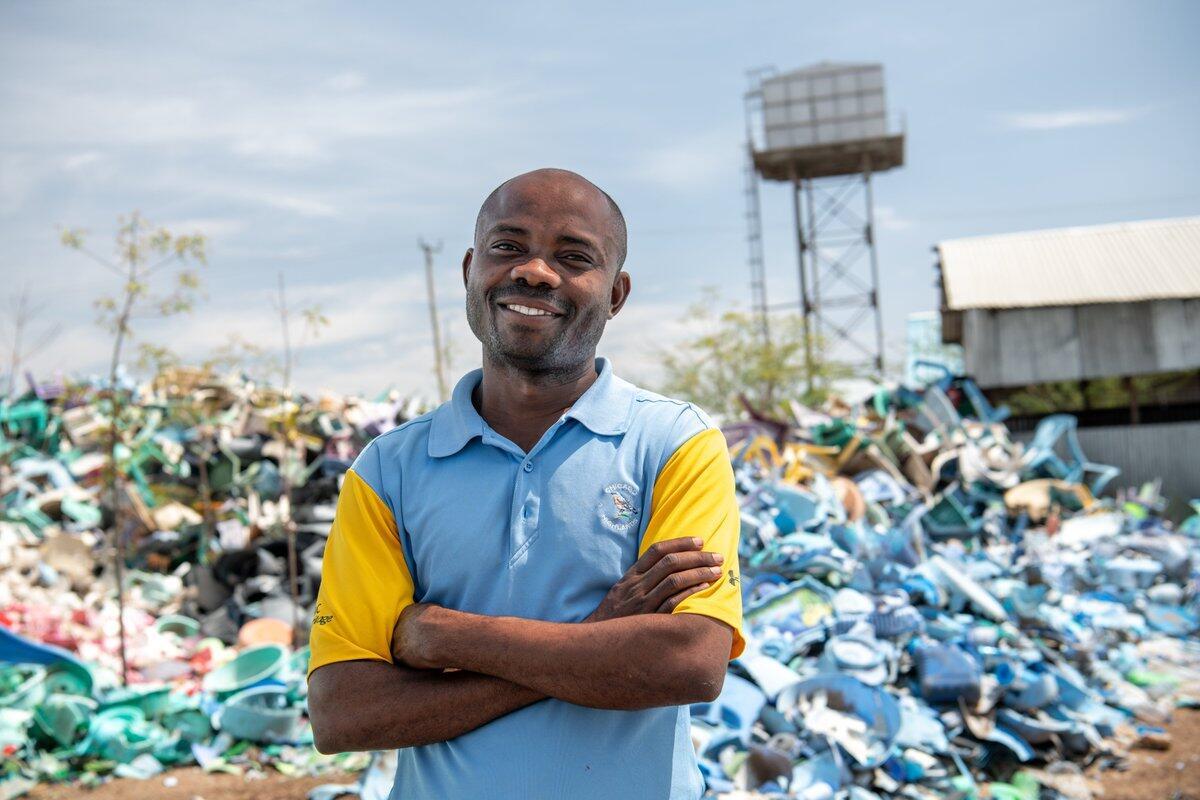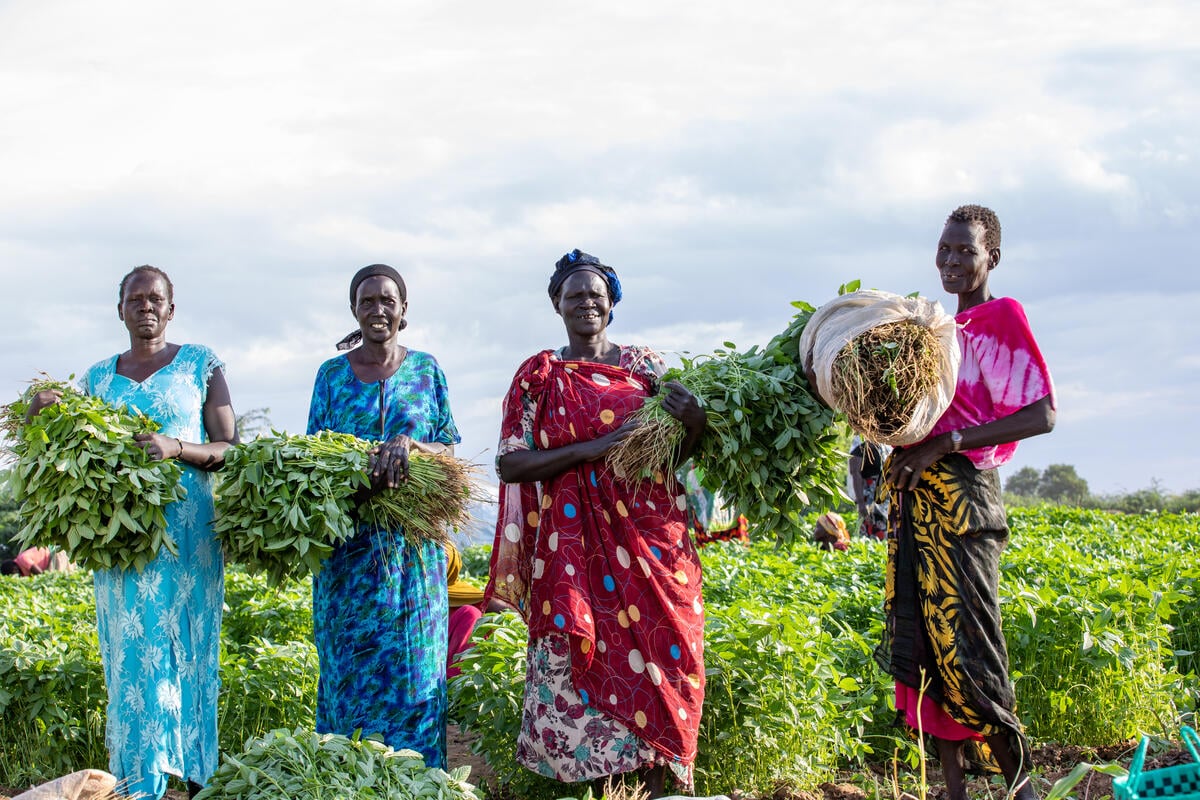Thousands flee into Uganda to escape North Kivu fighting
Thousands flee into Uganda to escape North Kivu fighting

KAMPALA, Uganda, October 23 (UNHCR) - The latest escalation in fighting in North Kivu province of the Democratic Republic of the Congo (DRC) has forced thousands more people to flee southwards towards Goma and across the border into Uganda.
An estimated 8,000 Congolese refugees who fled to Bunagana in Uganda over the weekend were still there on Tuesday morning. This is the third such influx into Uganda since August amid the spiralling conflict in North Kivu.
Ugandan authorities and UNHCR appealed on Monday to the refugees to move further inland to Uganda's Nyakabanda transit centre. The centre was set up by UNHCR and partners some 15 kilometres away from the border town of Bunagana.
"We are watching with concern the developments in eastern DRC, remaining hopeful that the situation will stabilize soon," said Mengesha Kebede, a deputy director of UNHCR's Africa Bureau. "Meanwhile, we are preparing with the government for the eventuality of a larger influx," added Kebede, who was on mission in Uganda.
Officials in Bunagana have reported two suspected cases of cholera among the refugees there, heightening the need to decongest the small town and move people to the transit centre, which is equipped with proper sanitation facilities.
As of early Tuesday morning, some 1,300 new refugees had been registered in the Nyakabanda centre, where UNHCR and MSF France have completed the construction of seven communal shelters to accommodate 1,500 persons. MSF has also started the immunization of children under five years old, while the UN Children's Fund (UNICEF) has set up two 10,000-litre water tanks.
Bigize Enok, aged 30, said he had fled from Karambo, several kms from Bunagana. "I was in my house when I heard gunshots last Saturday," he said, adding that gunmen started to kill people in the village. "I fled as soon as I could, without even waiting for my wife, who was not at home when the rebels came. I am very worried for her. I don't even know if she is alive or death."
UNHCR distributed kitchen sets and blankets to the 217 people who arrived in Nyakabanda yesterday. The agency is making preparations to provide assistance to up to 5,000 people. UNHCR and MSF (Médecins Sans Frontières) plan to transport another 150 families from the border to Nyakabanda tomorrow.
However, many of the refugees are reluctant to go to the transit centre. They want to stay close to the border in order to be able to cross back into DRC as soon as they feel it is safe.
By this morning, hundreds of refugees were still scattered around Bunagana, sleeping in shop verandahs or out in the open. Other refugees have been taken in by friends and relatives as they wait for tensions to subside in the DRC.
Some of the refugees in Bunagana say they have been displaced five times in the last two years. The UNHCR team in Bunagana reports that the new refugees are carrying more belongings than previously witnessed, indicating they may fear they will be in exile longer. In August and September, similar numbers of refugees fled to Bunagana but returned home several days later after fighting died down.
Inside North Kivu, a joint UN/NGO assessment team which travelled on Monday to Rutshuru district found several thousand new internally displaced persons (IDPs) near Kibumba, some 30 kilometres north of Goma. The IDPs said they had witnessed the fighting which forced most of inhabitants of Rugari village either eastwards towards the Ugandan border or southwards towards Goma.
Some of the displaced said they would move towards Goma for safety. Together with the Congolese authorities in Kibumba, UNHCR is working on the identification of a new camp site where assistance can be delivered in case a large number of IDPs decide to remain in the area.
In the meantime, small numbers of displaced continue to arrive at the six established internal displacement camps and makeshift sites west of Goma on a daily basis. Most say they fled their villages weeks ago and have been hiding in the forest to avoid rebel groups. When they felt it was safe, they moved onwards towards Goma.
The UN refugee agency's registration work in the six IDP camps close to Goma indicates there are some 45,000 IDPs now in those sites.
UNHCR remains concerned because of the limited access to many parts of North Kivu due to the tense security situation. The agency fears that humanitarian assistance has not yet reached many displaced persons in the troubled province. Estimates are that since December 2006, the number of newly displaced in North Kivu has reached 370,000 and continues to grow.









